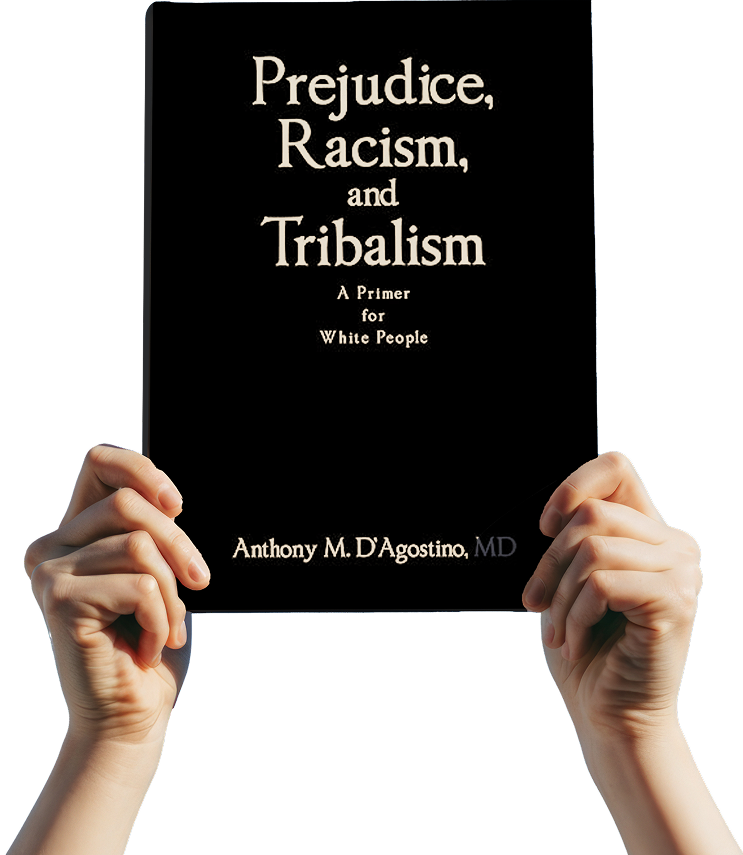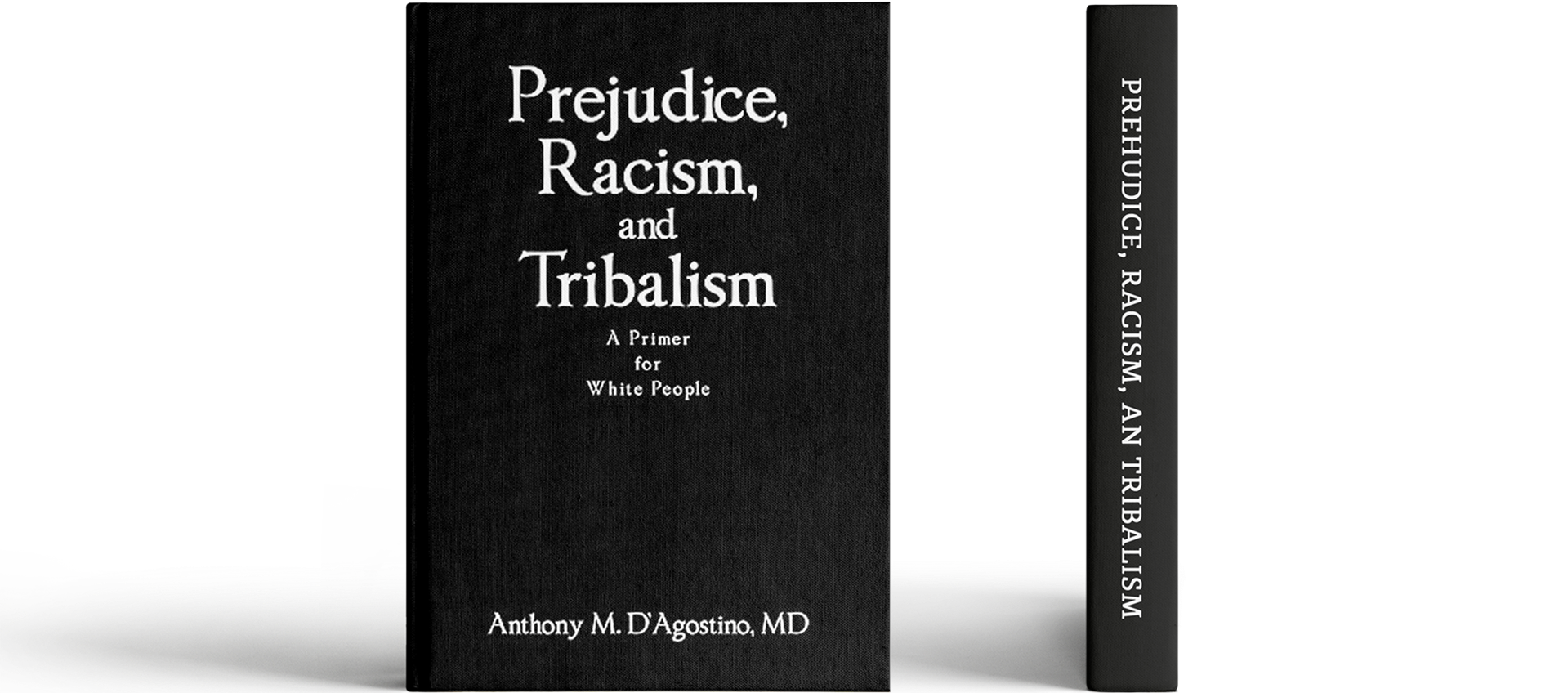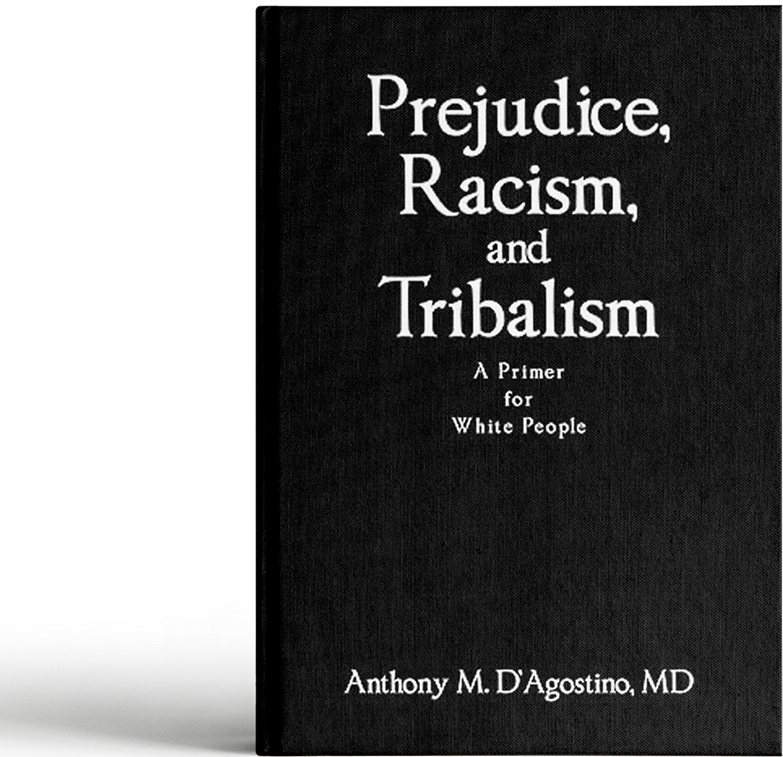Prejudice, Racism, and Tribalism is a thoughtful primer designed to explore where bias begins and how it shapes our world.

Prejudice, Racism, and Tribalism is a thoughtful primer designed to explore where bias begins and how it shapes our world.
Prejudice, Racism, and Tribalism explores how bias forms, how it spreads, and how it shapes our thinking and behavior.

This book is the author’s way of exploring these issues, one at a time. Prejudice, racism, and tribalism are, in a sense, variations on a theme. All people harbor prejudices. Racial prejudices are only one form among many. Raise someone in a racially non-homogeneous society, and similar prejudices are likely to appear. Tribal prejudices are so universal that they probably point to some biological imperative.
What is racism? Is it just one of those things that we know when we see it, or is there value in defining it more precisely? Are all White people racists? Whose definition of critical race theory and/or the so-called great replacement theory do you like?

Order your copy today and join thousands of white Americans confronting uncomfortable truths about race, history, and privilege. Available in paperback and Kindle formats.

A psychiatrist who spent decades studying human behavior—and his own biases.

Anthony M. D’Agostino, M.D., earned his medical degree from the University Of Illinois College Of Medicine (Chicago). He completed his residency training in psychiatry at the University of Illinois, Chicago; University of California, Los Angeles, and University of Wisconsin, Madison. He is a distinguished fellow of the American Psychiatric Association and was Chairman of Psychiatry at Alexian Brothers Medical Center, Elk Grove Village, Illinois and Chief Medical Officer, Alexian Brothers Behavioral Health Hospital, Hoffman Estates, Illinois, from 1979-2011. He continues in psychiatric practice at Alexian Brothers at time of publication.
Weekly conversations that go deeper into the themes of the book—exploring how bias shapes our politics, our communities, and ourselves.

Get updates on new podcast episodes, speaking engagements, and ongoing conversations about race, bias, and American history.
From the first word to the final page, our writers, editors, and publishers work with you to build stories that readers remember.
Great book. Highly recommended.
D’Agostino wants to clear the air by distinguishing between racism, which he defines as a systemic power structure that privileges Whites and disadvantages Blacks, from prejudices and tribal allegiances, which he sees as endemic in every society and, though often hurtful, not supported by embedded established interests and thus not as harmful.
Using himself as an example, the author, a psychiatrist and long-time Republican, emphasizes the importance of culture on self-definition along with the ever presence of self-interest in decision making. At the same time, he contends that corporate and Republican interests have learned how to entrench and enrich themselves (pharmaceutical companies and MAGA Republicans being prime examples) by twisting language and playing the race card to skew policy debate, thus tricking Whites into thinking that their economic interests are opposed to Blacks and aligned with corporate profits.
An extra benefit is the author’s uniquely engaging voice—approachable, forthright, and historically informed. This is a one of a kind book.
I really liked that the author included a lot about his own personal experiences living with these factors; I think this helps the reader put the book in perspective. I also loved the abundance of statistics
I found this book to be deeply engaging, clearly articulated and thoughtfully presented. Dr. D'Agostino writes with great care and clarity. The book begins by simply defining terms, and patiently untangles several complicated and overlapping concepts. Once he has defined these central ideas, Dr. D'Agosotino spends the rest of the book explaining how differentiating between prejudice, racism and tribalism makes it possible for us to more clearly understand our current cultural moment. His self-awareness and ability to soberly assess his own natural and learned and prejudices is refreshing and makes it clear that this book's purpose is not to preach at others, but to make sense of the world for himself as much as for his readers.
I appreciated the way this book engages with global and U.S. History. I never had the feeling that the author was cherry-picking examples to support a pre-drawn conclusion. Instead, with every chapter, he traces our modern ideas of justice and identity back to their biological and historical roots. There is no sense that the author is promoting any party or idealology. Instead, he invites the reader to join him in honest self-appraisal, through a historical and sociological lens.
I found the distinctions between the three title concepts, (Prejudice, Racism, Tribalism) to be a genuinely helpful way of sorting through many current political debates. While Dr. D'Agostino does not offer any easy solutions, he does set an example through his honest reflections on his own prejudices, and his assessment of the self-interest that motivates all people. If identifying the cancer of systemic racism is a step towards ending it, then this book presents an excellent path.
My overall take on the book is that I absolutely love it, 5 stars and I will re-read this book because it is so dense with knowledge, wisdom and experience. The book is like a beautiful masterpiece of art with interwoven fascinating historical facts and events. The historical references help further grab the attention of the reader as it's contextualized with life experiences and perspectives from the writer's magnificent mind himself. It is by far a book for the ages.